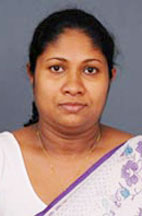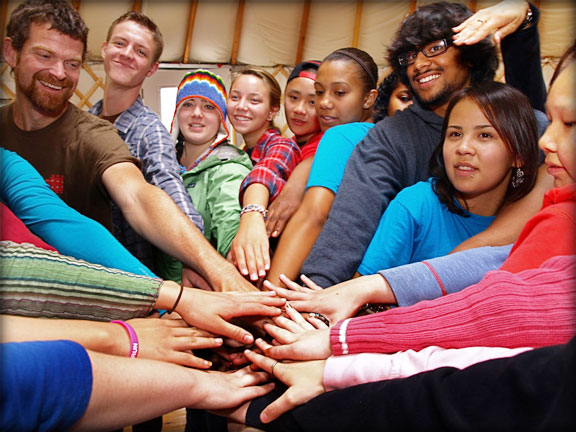Trustful relationships, key to adolescent health
by Carol Aloysius
At no time have young people been exposed to so many challenges as
they are at present. Apart from having to meet deadlines in their
studies and work, the daily exposure to violent environments, parents
who have no time for them, and social media which has often led to
negative impacts on them, has caused stress, worry and fears that have
exacerbated their already fragile world.
|

Dr Sudharshi Seneviratne |
The fact that their minds are working overtime and their emotions
often uncontrolled due to their youth and inherent impulsive behaviour,
has resulted in mental collapse. With no one to turn to other than their
peers, many of them end up with depression and mental conditions that
unless detected early, may require permanent medication.
The Sunday Observer spoke to Senior Lecturer, Department of
Psychological Medicine, Faculty of Medicine,Colombo and Hony.Consultant
Child and Adolescent Psychiatrist, LRH, Dr SUDHARSHI SENEVIRATNE for
some hands-on insights into this problem.
Excerpts...
Q: Today, an increasing number of adolescents experience
mental health problems. US studies have found one in 10 adolescents
suffering from such problems. Do you see this happening in Sri Lanka?
A. Yes, we do see an increase in the number of adolescents
referred for services. The reasons can be due to many reasons. One being
the increased awareness about mental health issues among the general
public.
The others is the change in the life trends where the adolescent is
faced with immense pressure both socially and academically.
This is a time many changes occur both physical and emotional and
hence a very susceptible period for onset of mental illness. It is
clearly documented that major mental illness such as schizophrenia and
depression has its onset during the early adolescent period.
Q: What are the main causes? Modern lifestyles? Stress?
A. It is difficult to pinpoint one cause. Like for many mental
illnesses the causes can be many.
This is a stage where major changes happen in our body and mind.
Children go through pubertal changes where there are many hormonal
influences. These can be a biological risk factor.
In addition this is a period where the adolescent is faced with many
social demands.
They are considered to be mature to some extent to manage their own
social contacts. So these are very demanding times.
Again, during this period the adolescent mind is in a conflict
between growing out of being a child and taking responsibility as an
adult. Both create many conflicts between adults and also peers. So it
is a demanding situation for them.
Adolescents also face many challenging exams during this time, which
adds to their stress. In addition, today there are many substances the
adolescents are introduced to by their peers which can also have lasting
implications for their lives.
Another contributory factor is the social media which has a big
impact on this age group resulting in some very negative results.
Q: What is the role of parents in helping adolescents to
adjust to this difficult phase?
A. Parents spend less time with their teenagers today and so,
have not developed good communication platforms in their early
upbringing. This makes it difficult to initiate good communications when
they become adolescents. It is one of the main causes for parent - child
conflicts when children become adolescents.
 Q: So how can this relationship be improved? Q: So how can this relationship be improved?
A. By starting early. If parents can provide quality time for
their child from an early age, they can build a trusting relationship
which the adolescent can lean on when they are in need. It is not the
number of hours you spend with your child but the quality time that
counts...
If a working parent can provide half and hour a day to spend quality
time with his/her child and make it a routine where meals at the dinner
table can become discussions and exchanges of views, it will go a long
way in forging those relationships of trust. The discussions should be
free and the child should not be made to feel he will be punished for
discussing something he did wrong . If we discourage the adolescent from
discussing his problems or punish him , he will not turn to you for
further advice.
Q: Has there been any surveys on mental health in adolescents?
A. A national survey on emerging issues among adolescents in
Sri Lanka was done with UNICEF in 2004. The survey inquired in to the
perceptions, aspirations, expectations and frustrations affecting mental
wellbeing of Sri Lankan adolescents. About 63% of school adolescents and
70 % of out-of-school adolescents had some attributes that they did not
like about themselves.
Q: What are the new trends you see contributing to mental
illness among Lankan youth?
A. We see a new trend of substance use among young people but
it has not reached the levels as in western countries. Some of the
substances are local products and are very difficult to eradicate. Many
of these substances are distributed by their peers.
There is also a surprising rise in the number of adolescents using
prescription medications, some which are available over the counter. The
adolescents who buy them clearly have no information on the actions of
these substances . It is the temporary euphoria that is derived from
these substances that drives them to use them..
Q: Any other new trends you see contributing to mental illness
I among Lankan youth? E.g. Does the internet and social media have a
negative impact?
A. I see a separate group of adolescents who are addicted to internet
gaming. There addiction is so intense that some of them have stopped
school to be at home to play internet.
This has resulted in young people spending more time away from
education. Again social media has its effects on peer connection,
relationships and also some amount of cyber bullying.
There have been a few cases where the social media has had negative
impacts on the social contacts after some people posting incorrect or
harmful facts about others.
There is also many sites accessed by the youth which are pornographic
sites. We have seen that some youth have undergone abuse when peers have
forced them to see these sites and at times have lead to higher level of
sexual contact between the youth.
Q: How do you identify a mental illness early in adolescents?
Symptoms?
A. Each mental illness will have its own distinctive features.
Generally if there is a change in the normal behaviour pattern of
someone, this is time to be vigilant about. During normal adolescent
development they can become withdrawn and have more time to them selves
but when engaged with family they will enjoy these interactions.
If there is mental illness we see that their withdrawn behaviour can
be more pervasive and they will fail to enjoy the usual activities they
have enjoyed before.
They will become very irritable for even the minute event and can
have anger outbursts. Some can demonstrate sleep disturbances and will
sleep late or wake up early.
They will show deterioration in their school achievements and will
refuse to take part in activities they have enjoyed previously. Refusal
to go to school can also be part of their on going distress.
Q: Can early identification make it easier for treatment?
A. Yes. It is best to start early. Some times normal
adolescent development is very difficult to understand. So there is no
harm in reaching for a professional.
Q: What is the treatment normally given if in the early stages
and the illness is mild? Counselling? Drugs?
A. There are treatment options both pharmacological and non
pharmacological. It depends on the type of illness.
The foundation for good treatment is a good engagement with the
youth. If this is established we can start with non pharmacological
methods but if the illness is severe or the circumstances does not allow
best to give medications.
Q: Where can parents go for such consultations in the state
sector?
A. There are youth services provided at the Lady Ridgeway
Hospital for children. There are also clinics that adolescents up to
18-20 years can be seen. If they require admission there is a special
ward at the National Institute Mental Health (NIMH).
Q: Gaps in care for young people with mental problems?
A. This is an area that is developing in our country. There
are only 5 child and adolescent psychiatrist in the country. So we have
a huge challenge. Admissions are only to NIMH. This is a problem due to
stigma and patients refuse admission to this ward. The LRH can admit
children only up to 12 years. So this population is vastly neglected.
Psychologists and counsellors are also limited, and only some of them
have had adequate training in this field. Some of the treatment is with
cognitive behavioural treatments. This is a very time consuming process
and the limited trained staff make it very difficult to provide this to
all the patients in need.
Q: As a specialist in the field, what solutions can you offer
to reduce the prevailing rate of mental illness among youth? Do you see
that boosting the positive aspects in the mindset of a young person
(like his resilience) is one solution?
A. Schools should encourage activities to improve skills in
youth such as communication, cooperation, good will and they should be
taught in as compulsory subjects in the curriculum.
There should be community responsibility programs to develop healthy
habits. I am concerned about the lack of practical aspects in our
current curriculum as youth and children have knowledge but the skills
and the attitudes are of very poor standards.
Developing a school society which values each student for their
abilities and not only for academic accomplishment is a must. Corporal
punishment should be minimised and there has to be a no bullying policy
in all schools.
Q: What is your advice to 1) young people 1) parents?
A. Youth needs to develop skills to have better
communications. Parents should provide the foundation for this
communication and be available for them. |

